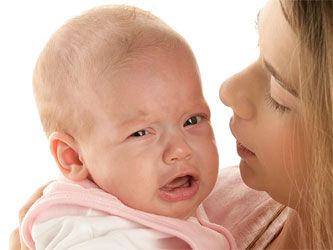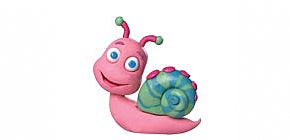Identifying Pain - From Birth & Through Growth
 |
|
From the moment they are born, infants are exposed to pain and discomfort as part of their growth process: teething, growing pains, gas-related stomach pains and more. And beyond all of that, infants and toddlers are more exposed to viruses, bacteria and infections, as their immune systems have yet to fully develop. Most pain and illnesses, especially those caused by viruses, are not treated by antibiotics, but rather by rest, pain management and fever reducing, as needed.
Here are all the phenomena that cause pain in infants and toddlers, their causes and how you can relieve your little ones’ discomfort and treat additional symptoms.
Growing pains and development
Infants and toddlers are exposed to pain from external sources, as well as from physiological changes. Even though they don’t usually indicate a health issue, these pains can be extremely uncomfortable. It is therefore recommended to relieve them, if possible.
● Circumcision: recovery from a circumcision lasts about a week, during which the infant may suffer from local pain and restlessness. If the infant cries or is restless, you can give them painkillers or fever reducers. If the infant’s fever does not go down and if they display signs of apathy, take them to a healthcare provider at once.
● Gas: 30% of infants aged three months and under suffer from gas, or colic (in professional terms). Many theories attempt to explain the reasons why infants experience gas, but western medicine has yet to isolate a single cause. As such, general consensus points to pain being caused by the digestive system’s immaturity, which causes gas to build up in the intestines. Here you’ll learn about gas in infants and how you can attempt to relieve it.
● Vaccines: A rise in temperature in the two days following vaccination is normal and can be alleviated using fever reducers designed for infants. Should a high fever spike, or other side-effects emerge following vaccination, consult with your pediatrician.
● Teething: Many infants suffer from strong teething pain and associated fevers. The use of painkillers and fever reducers will easily help your infant feel better.
● Growing pains: Toddlers, aged four and up, may complain of growing pains. These pains tend to manifest in the extremities, along the bones and generally appear during the evening and nighttime hours, You can relieve these pains by massaging the area, applying local heat, or administering a painkiller.
Pain as a result of illness, bacteria and viruses
● The flu: The flu is caused by a virus and manifests in the form of a fever, runny nose, sore throat and muscle pain. The flu tends to resolve on its own, without the need for antibiotics, but with the help of painkillers and fever reducers.
● Colds and runny noses: Colds are viral illnesses that manifest as swollen upper airways, sore throats, lots of phlegm, a persistent cough and sometimes even fever. Colds tend to resolve on their own, without the need for antibiotics, but with the help of rest, hydration, painkillers and fever reducers.
● Ear infections: Infants and toddlers are at a greater risk of developing ear infections, accompanied by strong pain and discomfort and generally linked to upper airway infections. If your infant is seen scratching their ears, if fluids are secreted by the ears, of they are restless and their fever is on the rise, they may have an ear infection. Over 50% of ear infections are viral and resolve on their own, without the need for antibiotics within a few days. That being said, you should provide your tot with medication to relieve the pain at once.
● Strep throat: Strep throat is characterised by the sudden onset of a high fever, accompanied by throat pain, pain when swallowing, shivers, muscle and stomach pain, vomiting and a generally lousy feeling. Sometimes, strep throat is accompanied by an eye infection. The source of the infection can be bacterial or viral, but infants under one year old will generally not contract bacterial strep. The recommended course of treatment for viral strep throat is rest, hydration, painkillers and fever reducers.
How to relieve pain and reduce fever in infants?
There are a number of medications on the market for relieving pain and reducing fever. They are designed specially for infants and children and can be bought over the counter
To relieve gas pain in infants, you can use a Health Ministry approved anti-gas formulation.
During their first year of life, infants experience extremely fast-paced development. Within just a few months, they develop exceptional motor and ...
Fever reducing medication, a humidifier to relieve stuffy noses and creams to treat the skin - everything you should have in your infant’s toiletry ...
Is your infant crying in (gas) pain, leaving you feeling helpless? Here are five ways you can survive the gas period:


.jpg)
.jpg)
.jpg)
.jpg)



.jpg)
.jpg)
.jpg)
.jpg)

.jpg)


.jpg)

.jpg)
Contact us